The nation is getting more active and shoppers want functional products that are fit for their healther lifestyles
Fitness is fashionable – it’s official. Sports participation has increased by 25% in the past 10 years (GSK research) and the gym is now a hot spot for millennials, with Instagram filled with images of celebs striking a pose in Lycra. And along with this comes an increasing interest in workout-friendly foods, with the use of sports nutrition growing at 26% year on year (Euromonitor Sports Nutrition in the UK Nov 2015). One in four consumers are now using sport nutrition in the UK (Attitudes towards Sports Nutrition, Mintel, June 2016).
Richard Danks, UK manager of Active Nutrition, the parent company to PowerBar, says: “The UK consumer is becoming more active, with 55% of consumers doing some sport once a week or more (Euromonitor 2016), which is increasing demand for functional products on the go, to meet the needs of their lifestyle.’’
Of those functional foods, ‘protein’ is the biggest trend, with its name finding its way onto everything from cereals to snacks, leaving c-store owners working up a sweat to keep pace with innovation.
“In every category I am seeing more and more new products which claim to be high in protein,” says Kay Patel, owner of four stores in East London. “When I’m looking for new products on wholesalers’ websites I tend to just type ‘protein’ into the search bar and see what’s new. Customers see these new products in store and are interested to know what they taste like and what health benefits they might have.”
Kay points out that small stores can find it difficult to stock protein bars and shakes as they tend to be supplied by small specialist companies which require certain stock size orders, but he endeavours to find ways to stock a good range of these because he can see their benefits. “I actually got a good deal on some Sci-MX protein bars on Amazon which I couldn’t have got through the main channels. Those are selling well for me and providing a good margin.”
“It’s not just body builders who are buying them, it’s people on fad diets and people who believe they should increase their protein intake,” he asserts.
Terry Adams, marketing director at ÜFIT, agrees that protein is increasingly regarded as a necessity for many. “Protein has risen to the top of the nutrient heap in recent years, as getting more protein into their diet increasingly becomes a top priority for many consumers.”
It’s because of this wide-ranging appeal that many big brands outside sports nutrition are muscling in on the trend. Warburtons has brought out a ‘protein-packed’ range of breads, Arla has started selling a protein yogurt, Florette has launched Protein Salads, and there are now many soups and ready meals with claims of high protein.
Sid Sidhu, owner of Sukhi’s Simply Fresh in Kenilworth, Warwickshire, says the cereals with added protein, such as Shreddies Max Protein and Weetabix Protein, are very popular at his store. The breakfast items with added protein work on the established belief that protein keeps us fuller for longer and therefore are a good way to keep us full until lunch.
Weetabix says Weetabix Protein Crunch, available in original and chocolate flavours, is aimed at consumers who have “a healthy and active lifestyle and understand the need to start the day with a balanced breakfast to power them through busy mornings”.
Barney Mauleverer, co-founder of Fuel10K and IamSouper Foods, says ‘making you feel fuller for longer’ is widely understood among researchers as a benefit of protein, but the labelling rules do not allow such a claim to be made at present.
He explains: “While I’m not sure that the general public really understands what protein is or does, most have heard it’s a good thing – especially in the morning after an eight-hour snooze.
“We initiated the protein trend in the breakfast category in 2013 to offer consumers the choice of finding protein easy to consume in the mornings. As a result, we’ve counted 42 products in breakfast cereals that now have protein in their name (20 are Fuel10K).”
Mauleverer claims that the new protein breakfasts on the market have attracted a new “younger than average” cereal shopper. “We focus on making breakfast easy for this group – easy format, easy protein and easy nutrition. Perfect for convenience stores,” he asserts.
Another key product area for c-store retailers to explore are protein drinks and protein bars, as these are the two key ways that shoppers first enter the category, according to MaxiNutrition marketing manager Monica Michalopoulou.
Protein bars are currently worth £31m and are the fastest growing segment in the category at +47% (Nielsen, SPN Summary, Value Sales, MAT, Total Coverage Sales to w/e 10 September 2016).
Michalopoulou says 61% of consumption of protein bars is for meal or snack occasions.
She adds: “Even among performance users only half of consumption is for workout occasion (The Boston Consulting Group, August 2012), so by offering a range of great-tasting new flavours, we can offer what they’re looking for while meeting their sports and nutrition needs, too.”
Sid says his most popular protein bars are those that still taste like treats. “The Snickers Protein Bar is really popular. It tastes like Snickers but with the added health benefit of protein. The Nature Valley Protein bars are also very popular,” he says.
These types of snacks are considered entry-level sports nutrition bars, according to SN brand PHD Supplements, as they provide a bridge between confectionery and sports nutrition.
If you’re still undecided about which bars to stock it is worth knowing that chocolate is the most popular flavour in the UK and the 50-60g bar is the key selling format in bars (IRI – MAT September 2015/2016).
Other snacking products which fall into this category are ‘protein balls’, which are individually-packed balls made up of nuts, fruits and seeds. Bimal Patel, who runs a Londis store with his brother Alpesh in Crouch End, London, says the Bounce Protein Balls are some of the best-selling high-protein products in his store.
PHD Supplements has a range of snacks under its Protein Works brand, which could appeal to shoppers who like protein balls but want to move on from entry-level products. The three snacks in the range are the Protein Nutty, Protein Truffle and Protein Brownie (rrp £1.99 each).
Clive Sheppard, who owns 10 South-west Spar stores, is seeing big sales from Clif protein bars. “They are very good sellers; they come in quite attractive American retro-style packaging and three interesting flavours: white chocolate & macadamia, chocolate chip, and crunchy peanut butter, he says.”
Clive says that he also sells Grenade bars – which he keeps on a separate display – to a variety of shoppers, which is impressive since their name, look and ingredients suggest they are aimed at gym enthusiasts.
And it’s not only sports foods that are attracting shoppers to Clive’s stores – sports drinks with added nutritional benefits such as protein are selling well, too. “Nurishment milk drink cans are very popular. We have a lot of cyclists come into our store and they often opt for that product.”
Cross-merchandise
Some retailers are seeing another benefit from stocking sports nutrition snacks, as those shoppers looking for a protein snack may well pick up other items while they are in the store.
Scott Graham, of McLeish in Inverurie, is one such retailer who has found that protein snacks are a great way to get cross-category sales. “We get a lot of people buying protein bars with a coffee as an on-the-go breakfast solution. Cyclists will often buy them with a cold soft drink or a protein water,” he points out.
Scott keeps his protein snacks grouped together, in a prominent spot at eye-level, within the snacking aisle.
Sid makes the most of cross-category sales by keeping snacking bars, including the high-protein options, by the coffee machine at the front of the store.
Robin Newbould, impulse channel controller for PHD Supplements, advises that c-store retailers should merchandise their protein snacks within the confectionery/snack aisle as well as at the till, and keep shakes within the chiller. Signposting ‘low sugar’ and ‘high protein’ also attract attention.
PHD’s line-up
Diet Whey Bar (rrp £2.39) – 25g of protein, added CLA, L-Carnitine and flaxseed and less than 1g of sugar per bar
Pharma whey bar (rrp £2.39) – 30g of protein, high in fibre and only 3g of sugar
Protein flapjack (rrp £1.49) – 19g protein, only 2g sugar per flapjack and an oat blend for a source of complex carbohydrates
Protein Supergrains (rrp £1.99) – full of super grains, seeds and protein. Gluten-free, naturally flavoured and sweetened, and suitable for vegans
Diet Whey milk drink in chocolate, banana or strawberry flavour (£2.49) – up to 27g of protein, fat free and less than 160 calories per bottle, formulated with green tea extract and L-Carnitine.
Demographics
Before store owners rush out and fill their shelves with protein-filled products, it’s worth noting that interest in them, while much more mainstream than it was in the past, is more prevalent with shoppers in their teens and twenties. Says Kay: “The people buying into this trend are both men and women now, whereas in the past it might have been a more male-dominated market, but generally people over the age of 40 aren’t buying into it.”
Research by HIM backs up this view. Its research shows that 18% of under-18s and 11% of 18- to 34- year-olds are regular drinkers of protein shakes, whereas 71% of over-55s said they were not interested in trying a protein shake, while just 1% said they were a regular drinker.
Mintel 2016 research also finds that younger generations show the highest use of sports nutrition, peaking at 42% among under-25s, in line with this cohort exercising most frequently. Mintel’s data also shows that affluence links with use of sports nutrition products, uptake rising to 31% of people with a household income of £50,000 or more and 38% of socio-economic group A.
functional drinks a liquid asset
Functional products that help consumers get through the day are becoming ever popular and this demand is being reflected across soft drinks, too, where the category is expected to grow 10% to reach £1.37bn by 2019 (IGD Market and channel forecast 2015-2020).
Red Bull is currently growing 8.6% in value and 10% in volume, cementing the brand as the leading functional energy drink (IRI).
Orange is the number one soft drinks flavour, and crucial within the sports & energy sector where it accounts for more than 40% of flavoured drinks sold (IRI 52 w/e 23 January 2016). The company believes flavour remains a key opportunity to bring new shoppers into the category and in 2016 Red Bull extended its Editions range with a new orange flavour. Red Bull Orange Edition follows the introduction of Red Bull Tropical Edition in 2015.
Red Bull Orange Edition is available in 250ml plain and £1.19 pricemarked (PMP) packs, as well as 250ml four-pack.
The company also believes PMPs are vital for retailers to drive sales. They provide customer confidence in brands and help to increase basket spend. In a recent study Red Bull discovered that 98% of shoppers would buy a pricemarked soft drink, however, only 80% of retailers stock pricemarked packs ( Litmus value sales, symbols and independents, 52 w/e 27 December 2015).
Within convenience, PMPs can drive significant sales for retailers, with Red Bull 355ml an example of this. The £1.49 pricemark brings in an average of £14.60 per store, per week (IRI Litmus, symbols and independents quarter to 24 July 2016).
Naturally good
For retailers looking to get into protein products without stocking shakes or bars, there is a growing awareness of foods that are naturally high in protein, such as nuts and nut butters. Thanks to the health trend towards eating more protein, the UK peanut butter market has been growing in value at 11.4% year on year (Kantar Worldpanel 52 w/e 11 October 2015).
Sid is making the most of this trend by ensuring he stocks a range of nut butters which appeal to the health-conscious audience – some Meridian butters, for example, have no ingredient other than nuts. He stocks the big tubs “as they are something I know they [shoppers]can’t source easily elsewhere so it makes Sukhi’s a destination store for that product.”
The trend for sports nutrition may have been building for a few years, but it is showing no signs of slowing and could help retailers tap into the growing number of shoppers looking for a healthier lifestyle. Kay says: “I don’t know how long this trend will last, it’s been going for more than a year now and still seems to be going strong, but I’m going to keep putting my all into it while it’s still in vogue because the margins are good!”
Lucozade Sport extends its appeal
Lucozade Sport’s appeal is wider than just sporting types, making it a must stock for c-store retailers, according to the company.
Mark Sterratt, commercial marketing director at Lucozade Ribena Suntory, says: “Lucozade Sport is the UK’s no 1 sports drink brand, and in the past year has achieved more than £100m in value sales, with nearly £50m through convenience (IRI 52 weeks w/e 20 November 2016).”
He reports that Lucozade Sport has grown ahead of the sport segment in terms of total UK value sales. “The key to this success is the shift the brand has taken to a more inclusive, positive and modern marketing strategy,” he points out.
The top five SKUs in the sport segment in the convenience channel are: Lucozade Orange Sport; Lucozade Sport Raspberry; Lucozade Sport Mango/Passionfruit, Powerade Ion Berry and Lucozade Sport Caribbean Burst (IRI Marketplace, sport segment, 52 w/e 20 November 2016).




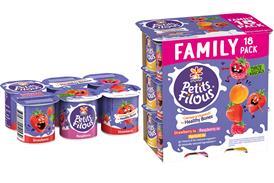
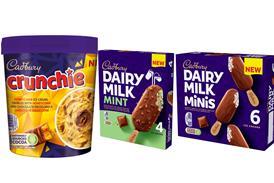
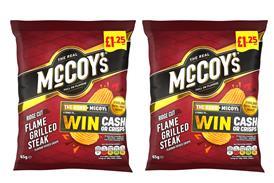
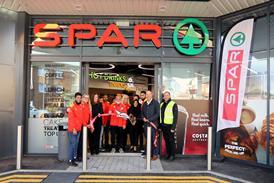








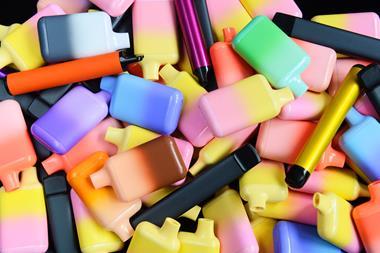
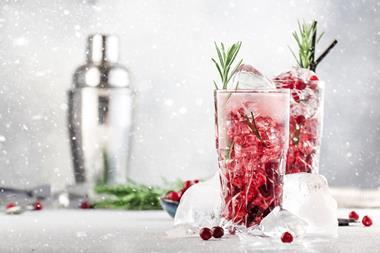
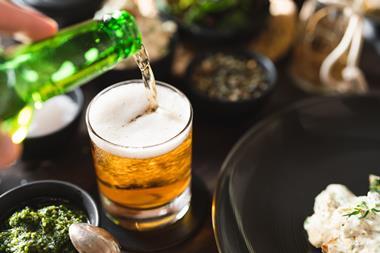



No comments yet